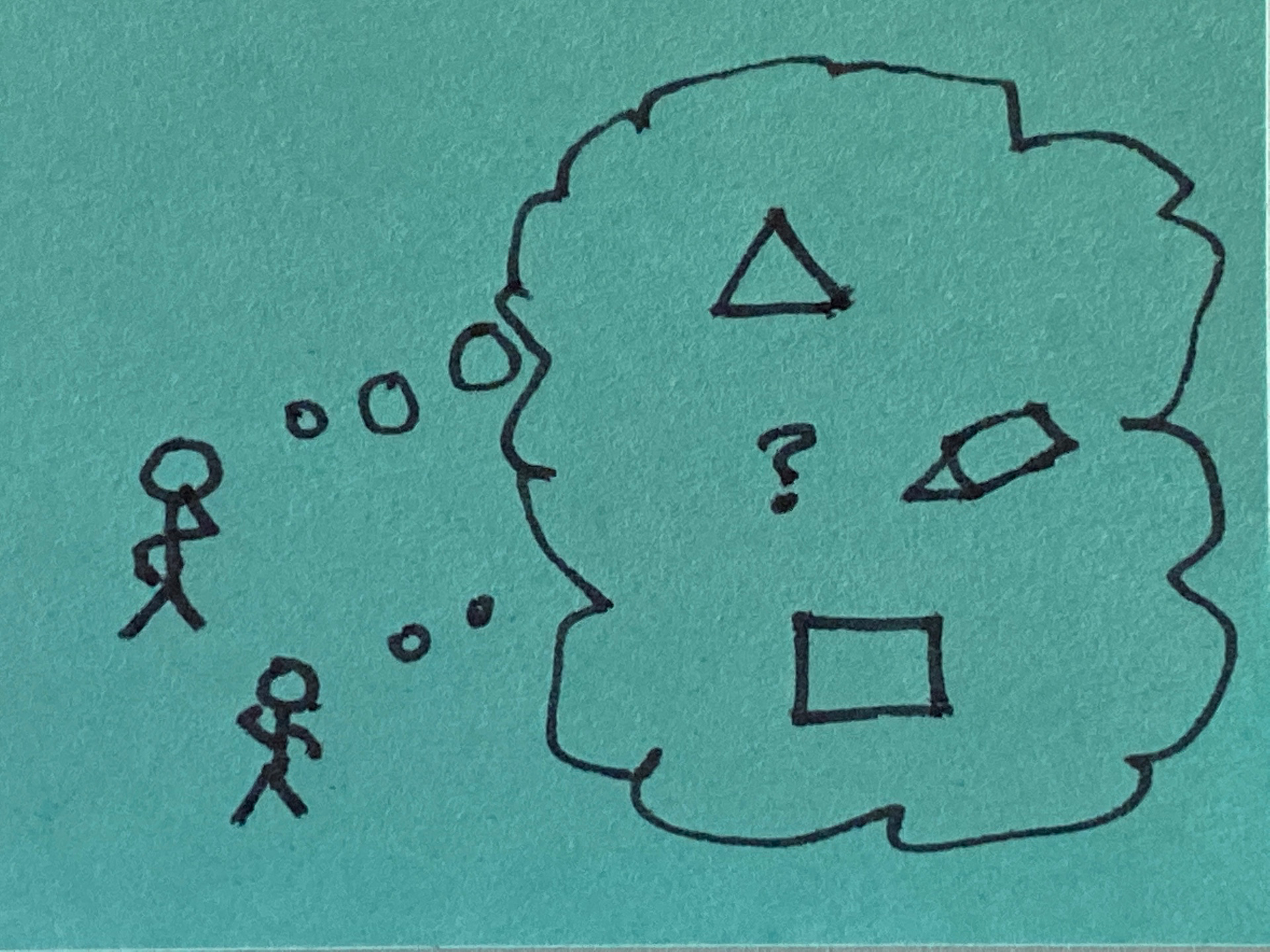Connections Game
Play a game of connections to actively integrate your knowledge and make new discoveries.

we can strengthen our knowledge by integrating the contents of our Personal Universe, and it makes us more aware of the interdependence of everything. This pattern explores a way we can intentionally integrate our understanding.
Our society still values specialized knowledge, and we’re generally not encouraged to connect ideas across areas of knowledge. As a result, our understanding is limited by being disconnected in our minds.
-
Integrating our knowledge is one of our greatest challenges. Our economic and educations systems both encourage specialized knowledge and information silos, so making connections is something we have to take on ourselves. You can do it as part of your ongoing learning, looking for connections between ideas and generalized principles that cross areas of knowledge. You can also do it by playing a connections game where a group of people challenge each other to connect ideas and learn from each other.
-
There are some who refer to a connections game like I’m proposing as The Glass Beads Game from a book by the same name published by Hermann Hesse in 1943. In that book, the main character is part of an intellectual community set several hundred years into the future where the ultimate honor is to be master of said game. The rules of the game itself are not clear but it is described as “an elaborate game that uses all the cultural and scientific knowledge of the Ages.” The goal appears to be to demonstrate a complete integration of ideas, making connections between, say a piece of music and a philosophical thought.
-
It’s important to understand that the main character of the book ultimately gives up his title as master of the game and leaves the intellectual community with the intention of serving others. The book is considered a criticism of the inaction of intellectuals during the rise of the Nazi party in Germany. The lesson being that our intellectual side should not be developed in isolation, without concern for real problems in the world, a sentiment that I clearly share.
-
For our purposes, the game need not be so lofty. There are probably many ways such a game could be designed. I have one example that you can download for free and play as you like. It’s called Crystal Word Chain (crystalwordchain.com) and it was originally a game involving connecting words in common pairs. You can still play it with the old rules, but I’ve repurposed it as a connections game as well.
-
The main thing is to make sure you play it in a constructive way, where any connections that are proposed are treated with true curiosity. It may be difficult for a player to communicate the connection they can intuitively feel, but it will be worth exploring every idea.
-
Connections can be made a various levels and players should be encouraged to make deeper connections as much as possible. Richard Feynman, talked about the difference between knowing the name of something and knowing something. Knowing the name of something doesn’t constitute knowledge, and the same goes for being able to categorize it. I can tell you that the brown-throated thrush is part of the category of “birds,” but that is a fairly superficial connection, and not very meaningful. It would be more meaningful to connect that bird with something based on its behaviors.
Therefore:
Play a game of connections with yourself and others to actively integrate your knowledge and make new discoveries.
To maintain an openness and curiosity during the game, consider versing everyone in Rule Omega as part of the rules of the game